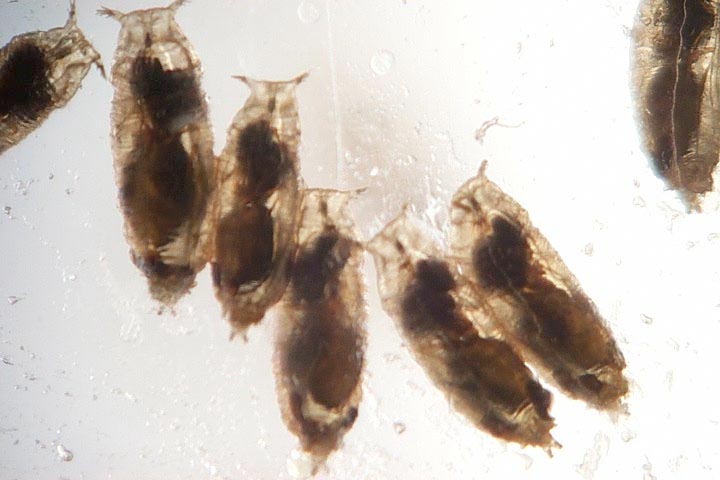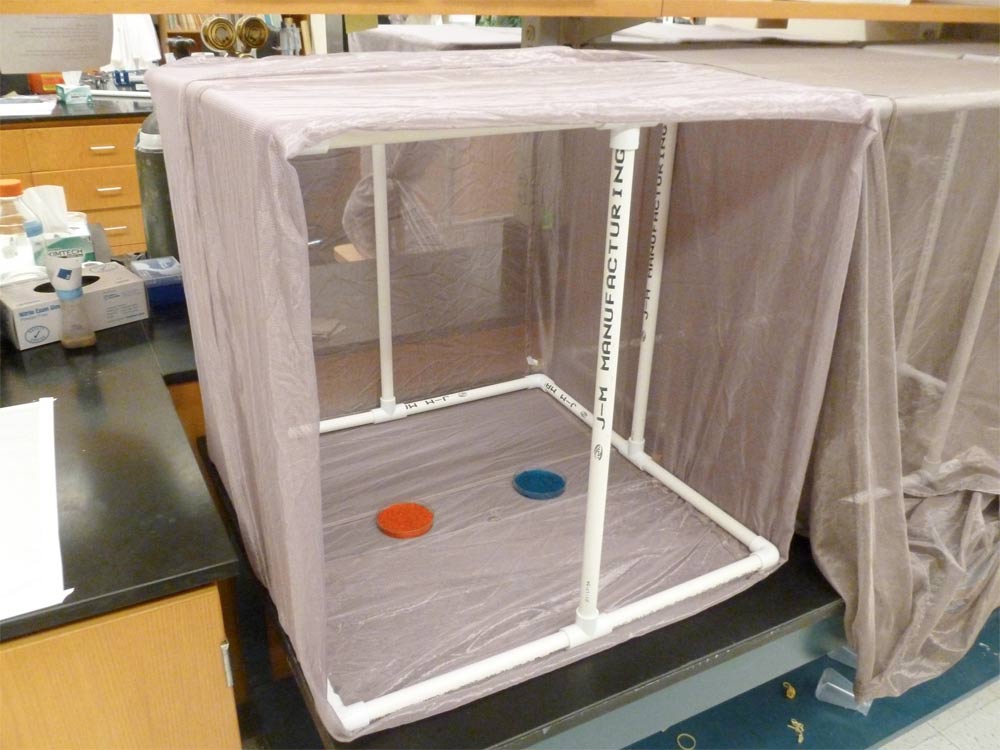Fruit Flies Medicate Offspring with Alcohol

It's not likely anyone would nominate a fruit fly for a "Best Mother of the Year" award — after laying her eggs, the insect hits the road, never to be heard from again. But it now turns out that fruit fly mothers aren't completely uncaring and actually try to give their offspring a fighting chance at life.
If she spots a deadly parasitic wasp around, the female fruit fly will "medicate" her offspring by laying her eggs in an environment with high levels of alcohol, which is very toxic to the wasps but not to the flies, new research shows.
Throughout the world, parasitic wasps are a bane to fruit flies. Female wasps lay their eggs inside fly larvae, which then hatch and eat the maggots from the inside out. Fly larvae have a natural immune response to try to kill the wasp, but the venom the wasp injects along with her egg sometimes counters this defense.
"Who survives is totally dependent on the fly strain and the wasp strain," said lead researcher Todd Schlenke, a biologist at Emory University in Georgia. "You never really know who's going to win."
Last year, Schlenke and his team discovered that infected fly larvae have another trick up their sleeves to defeat their enemies: alcohol. Unlike wasp parasites, fruit flies have a high tolerance for alcohol, likely because the fly larvae live in rotting fruit, where a lot of fermentation is taking place. So if a maggot has a wasp growing inside of it, it will seek out and consume food with high levels of alcohol to kill the parasite. [The 10 Most Diabolical and Disgusting Parasites]
This finding led the researchers to wonder if adult fruit flies, which don't get infected by the wasps, know to use the chemical weapon against the parasites. "Would the flies change where they lay their eggs if a wasp is around?" Schlenke said.
Battling with alcohol
Get the world’s most fascinating discoveries delivered straight to your inbox.
In the new study, Schlenke and his team stuck adult female fruit flies (Drosophila melanogaster) into a cage with two food dishes, one alcohol-free and the other with 6-percent alcohol. If no wasps were present, only around 40 percent of the flies laid their eggs in the alcoholic food. But if the researchers put female wasp parasites (Leptopilina heterotoma) into the cage, about 90 percent of the flies laid their eggs in the alcohol-laden dishes.
This behavior, the researchers found, lasts for several days. When the fruit flies were "pre-exposed" to the wasps, they remembered the danger and continued to prefer laying eggs in the alcoholic environment for up to four days after the wasps left the cage.
The researchers then wondered how, exactly, the fruit flies sense the presence of the wasps. By using mutant flies that either couldn't see or smell, they discovered the flies recognize the wasps based on sight — an interesting ability considering that the flies had been reared in a wasp-free lab for generations.
"The flies have never seen wasps in their lives, neither have their parents or their grandparents," Schlenke explained, adding that the flies must have "innate search images for wasps."
Interestingly, these search images are sex-specific; the fruit flies don't seem to care if male wasps are around. Male parasitic wasps have noticeably longer antennae than female wasps, so the researchers tested if clipping the males' antennae would trick the flies. It didn't. The fruit flies somehow still knew the wasps were male and stuck to the alcohol-free dishes, suggesting they recognize the female wasps based on some other characteristic. [Googly Eyes: Photos of Striking Wasp Faces]
A widespread behavior?
Schlenke is curious to see how widespread this "behavioral immune response" is. In the current study, the team found that a host of other booze-tolerant flies also pre-emptively medicate their young with alcohol when they spot the wasps. But fly species that don't live in rotting fruit never choose the alcohol-laced food over the alcohol-free food, even if a wasp is in sight.
Do these flies, and maybe even other types of insects, have a different immune tactic to fight parasitic wasps?
For instance, some fly species live on mushrooms, which contain a variety of toxins, Schlenke said. "I wonder if mushroom flies are able to use the mushroom toxins to protect themselves against wasps," he said.
These behavioral examples would help show that the immune system is made up of more than just immune-activated cells, such as antibodies, Schlenke said. Specifically, immune behaviors, such as medicating oneself or another, are also part of an organism's immune system.
"We need to think of the immune system as a broader set of structures and processes that protect an organism from infection," Schlenke said.
The research is detailed in tomorrow's (Feb. 22) issue of the journal Science.
Follow LiveScience on Twitter @livescience. We're also on Facebook & Google+.




